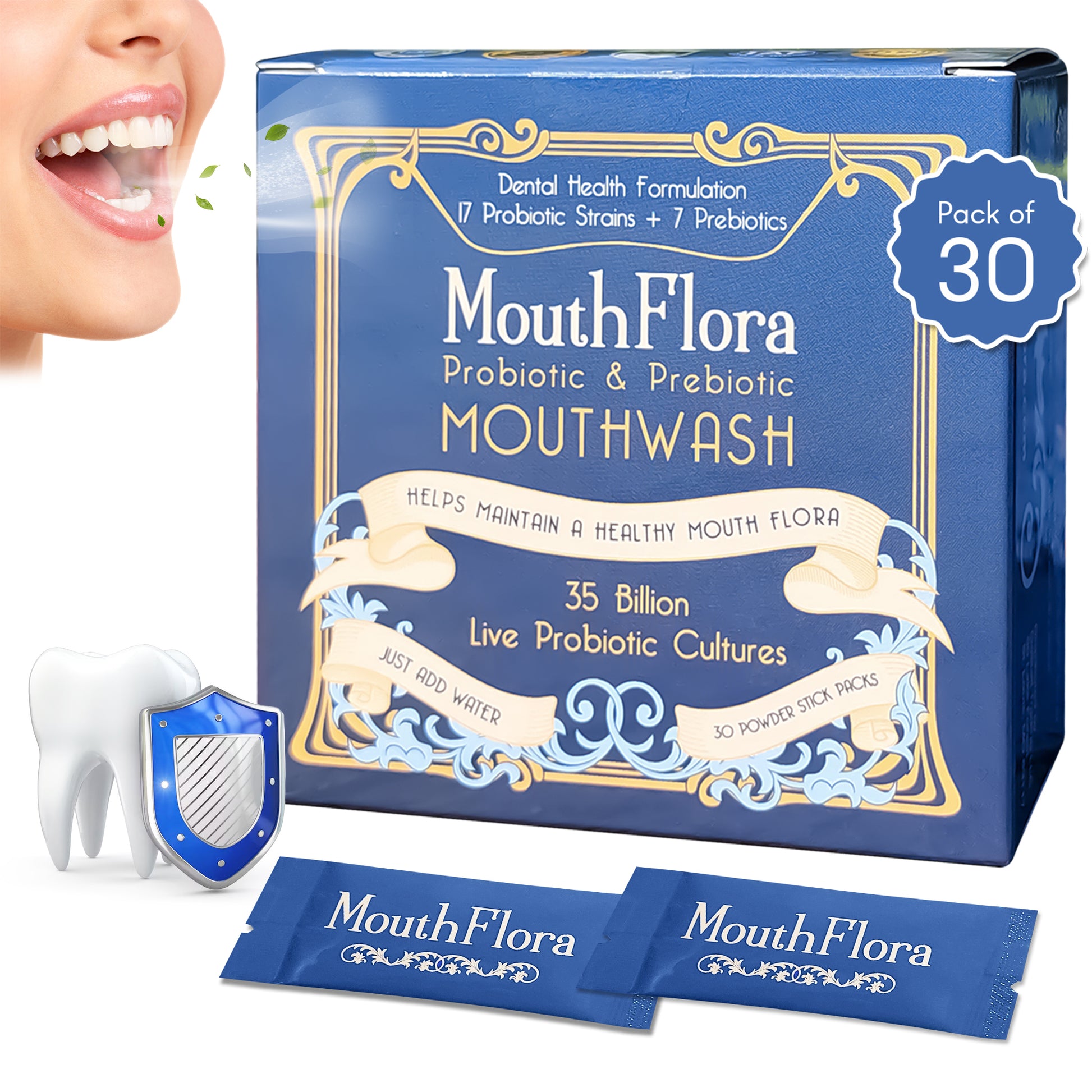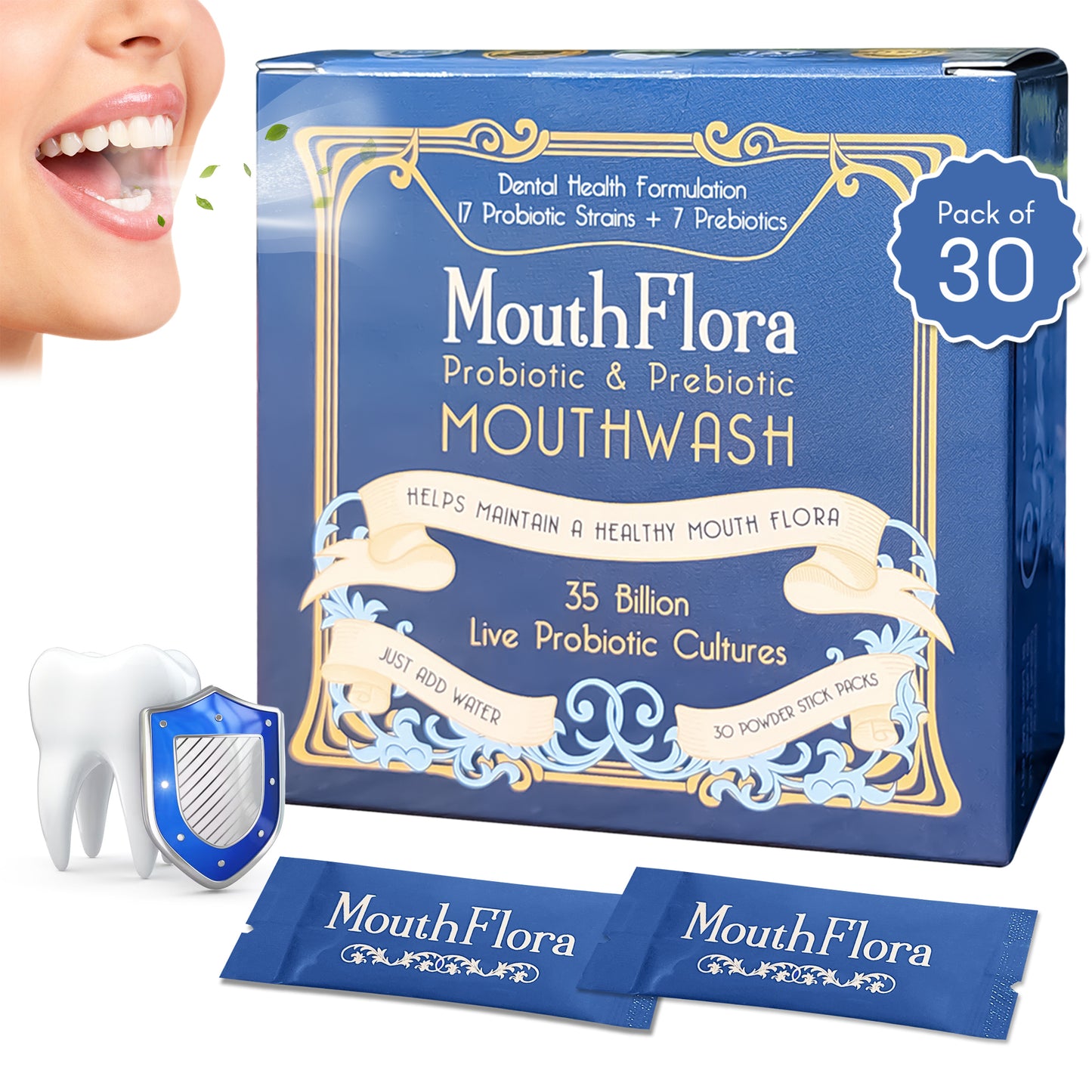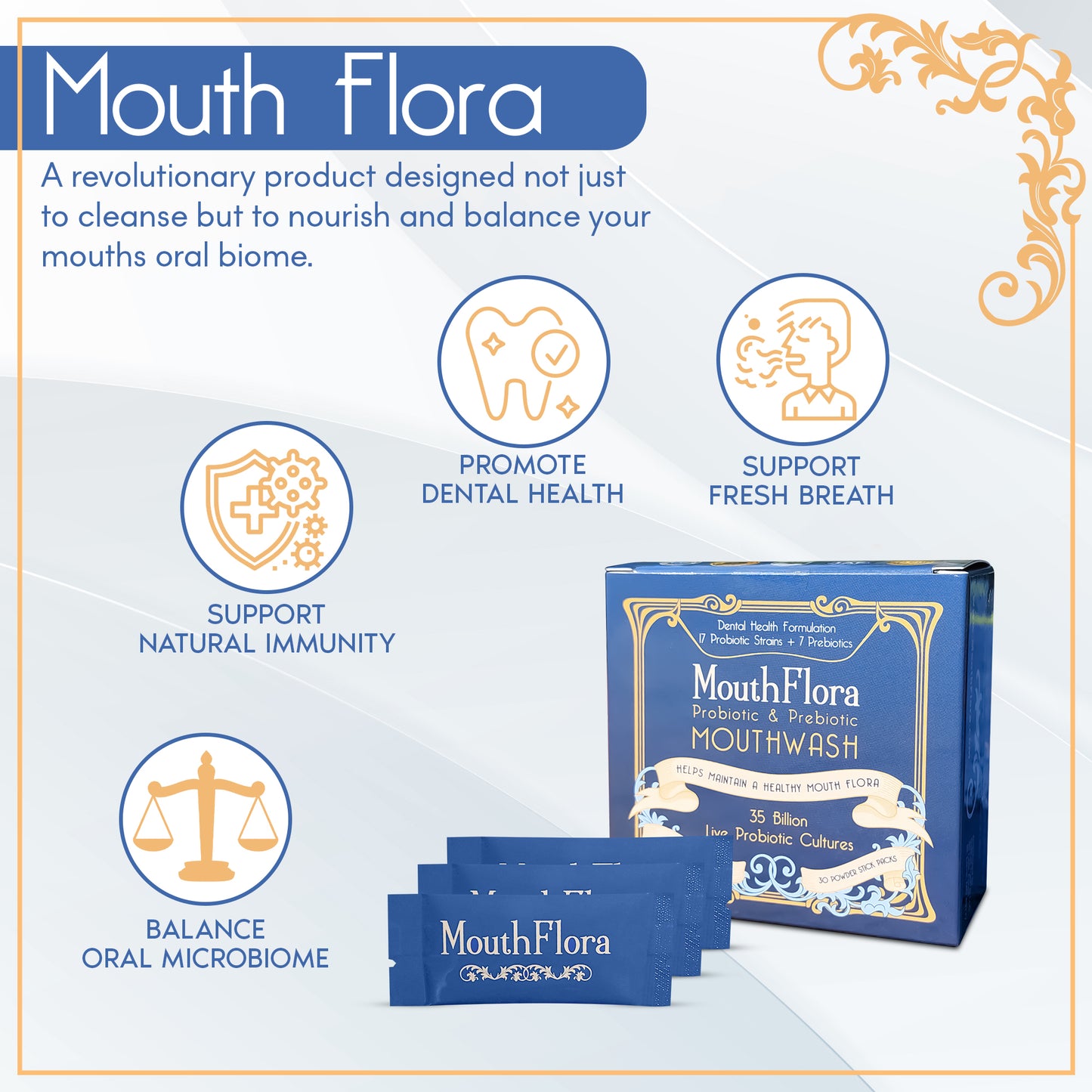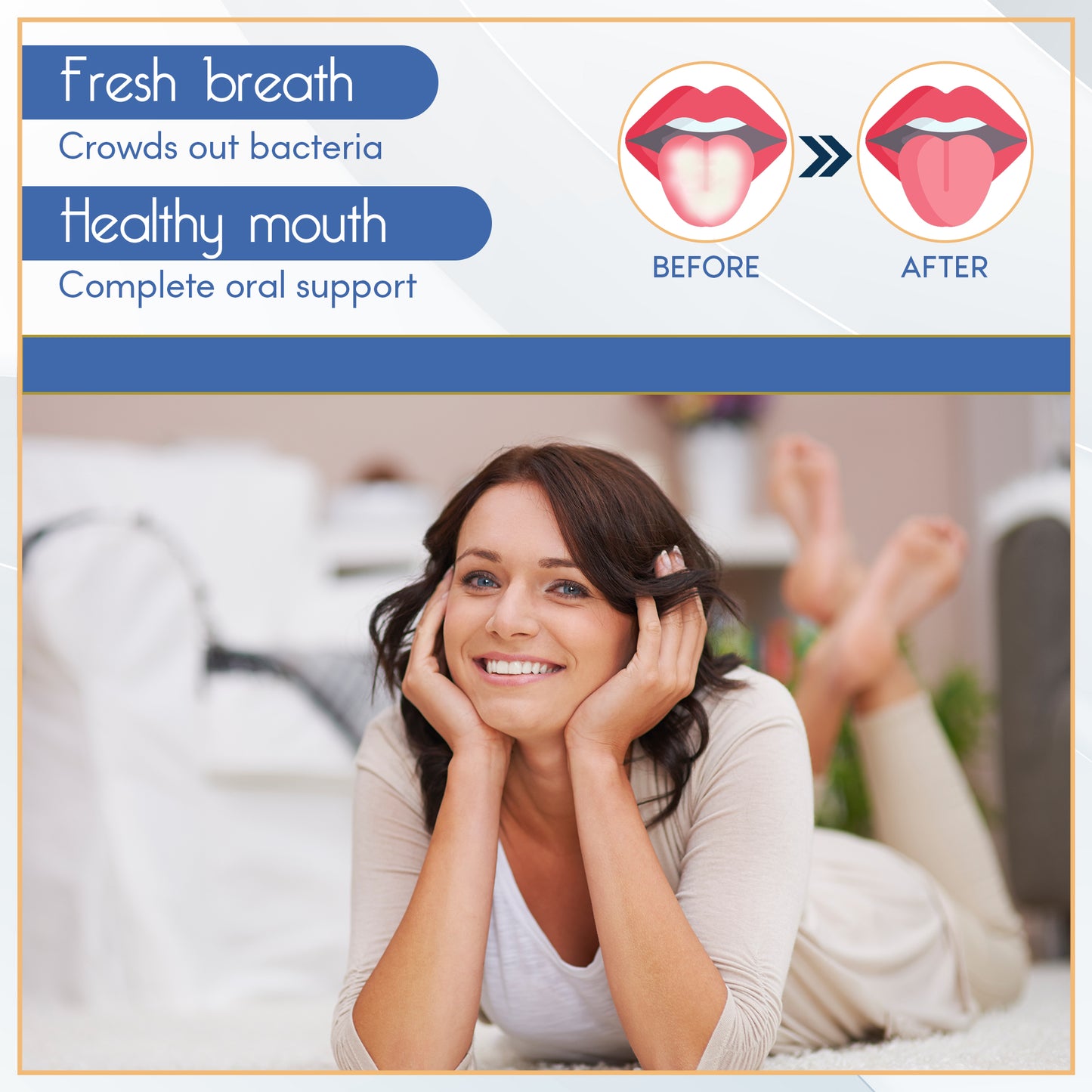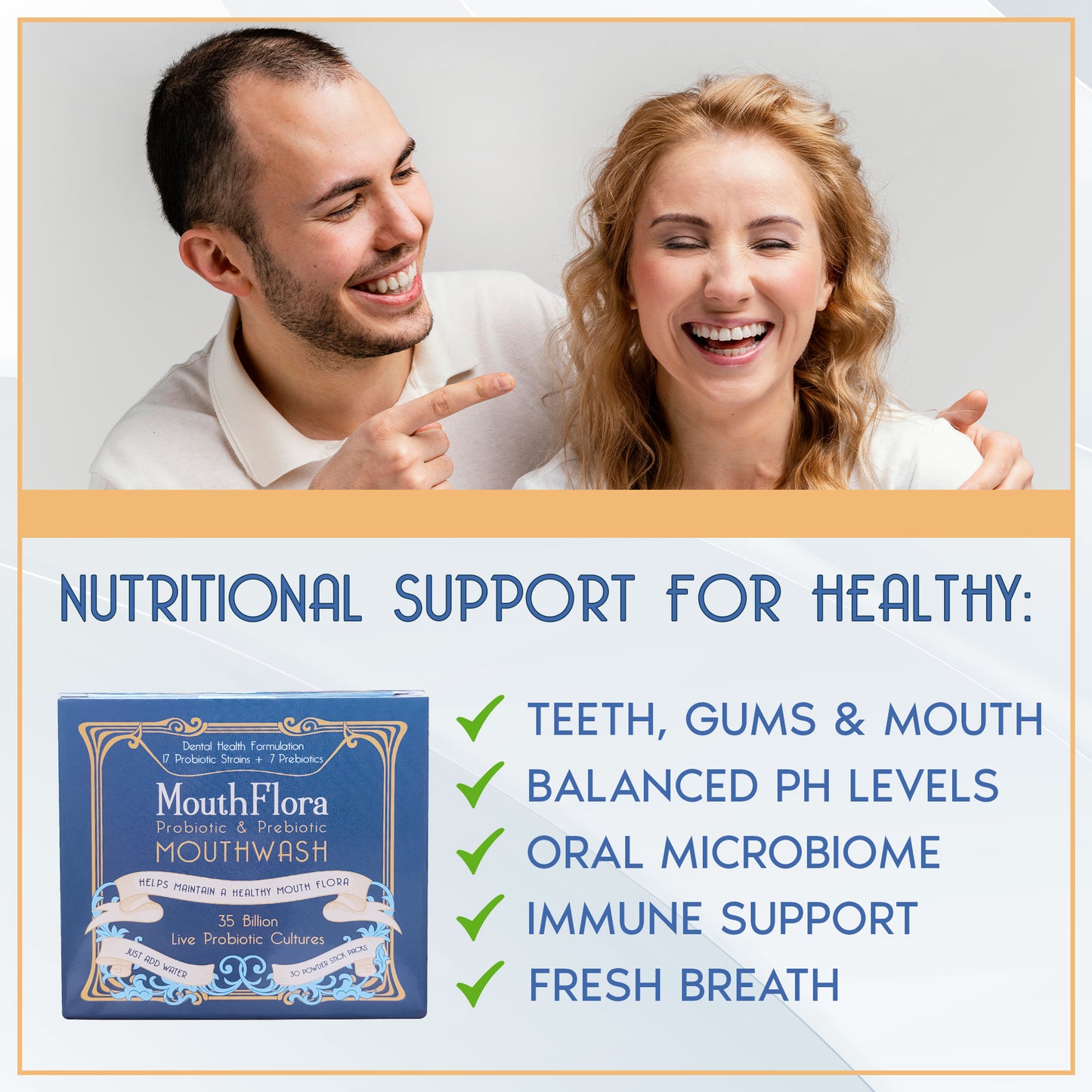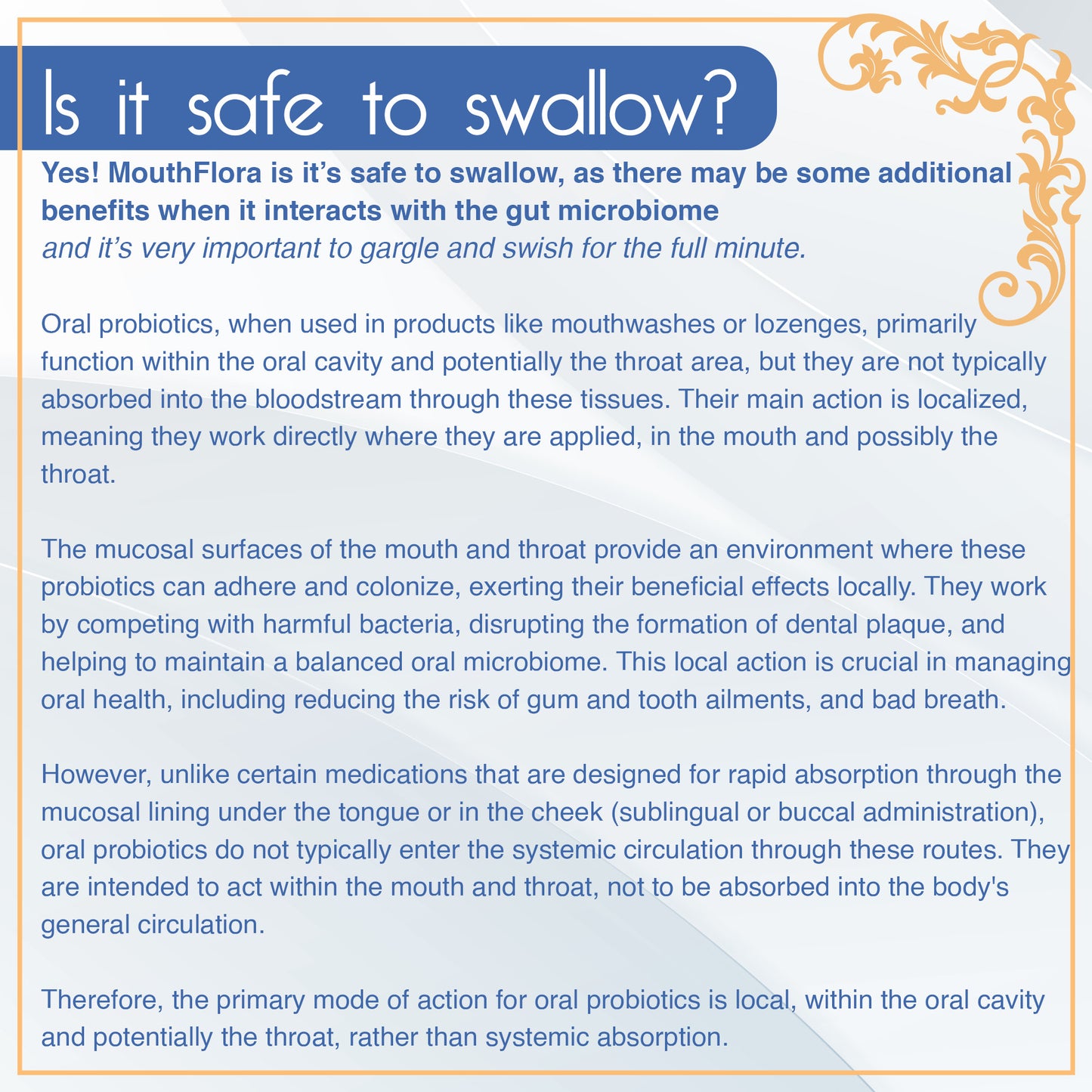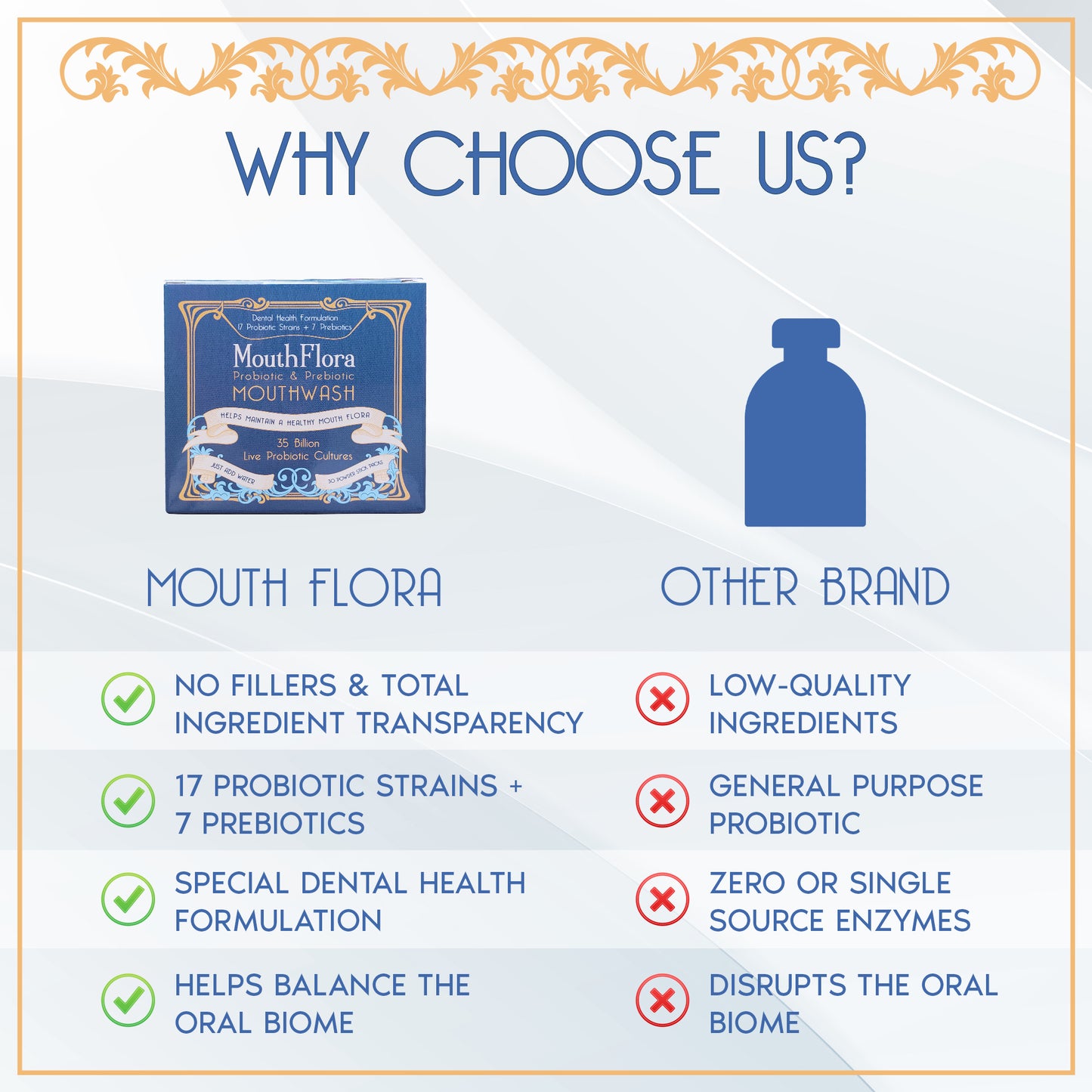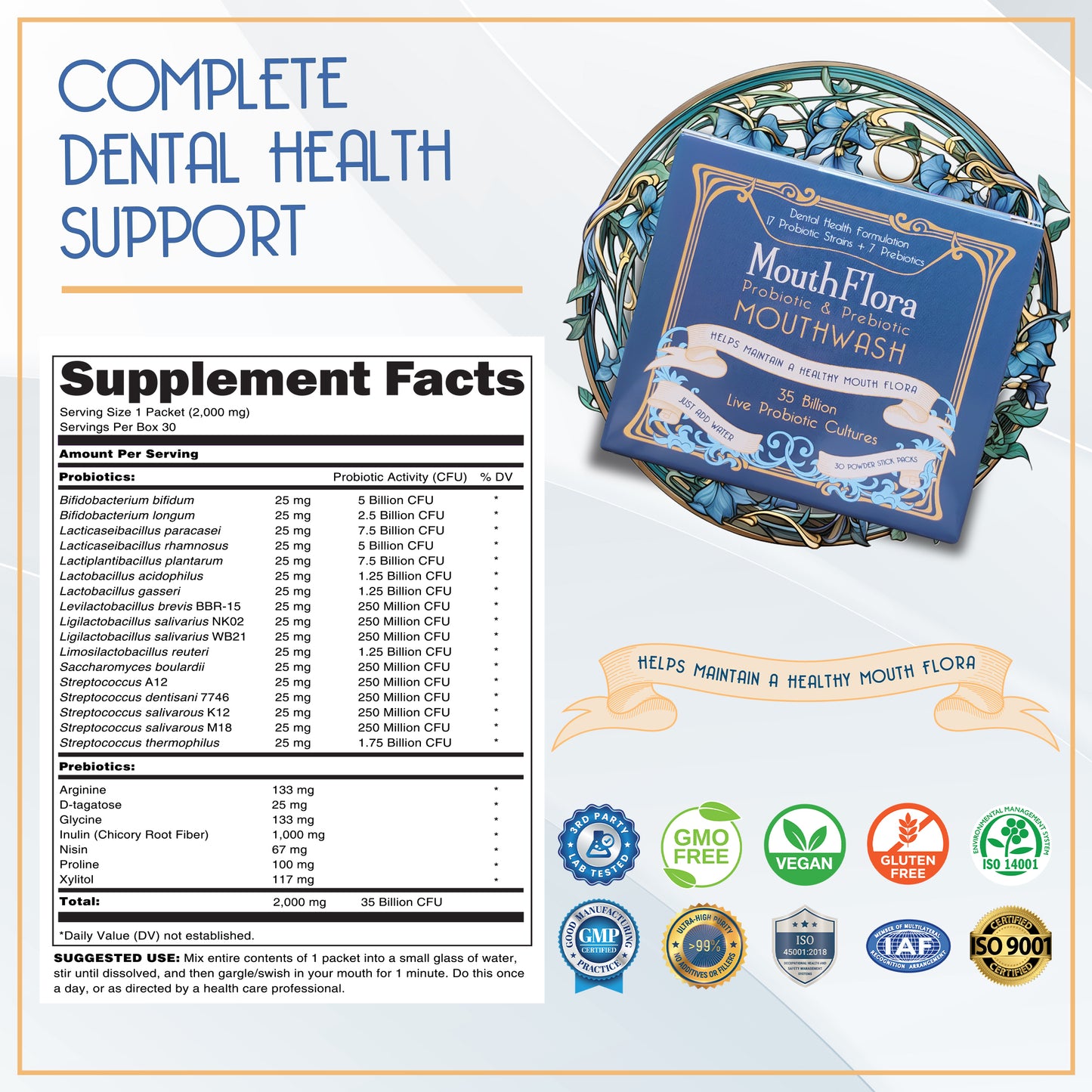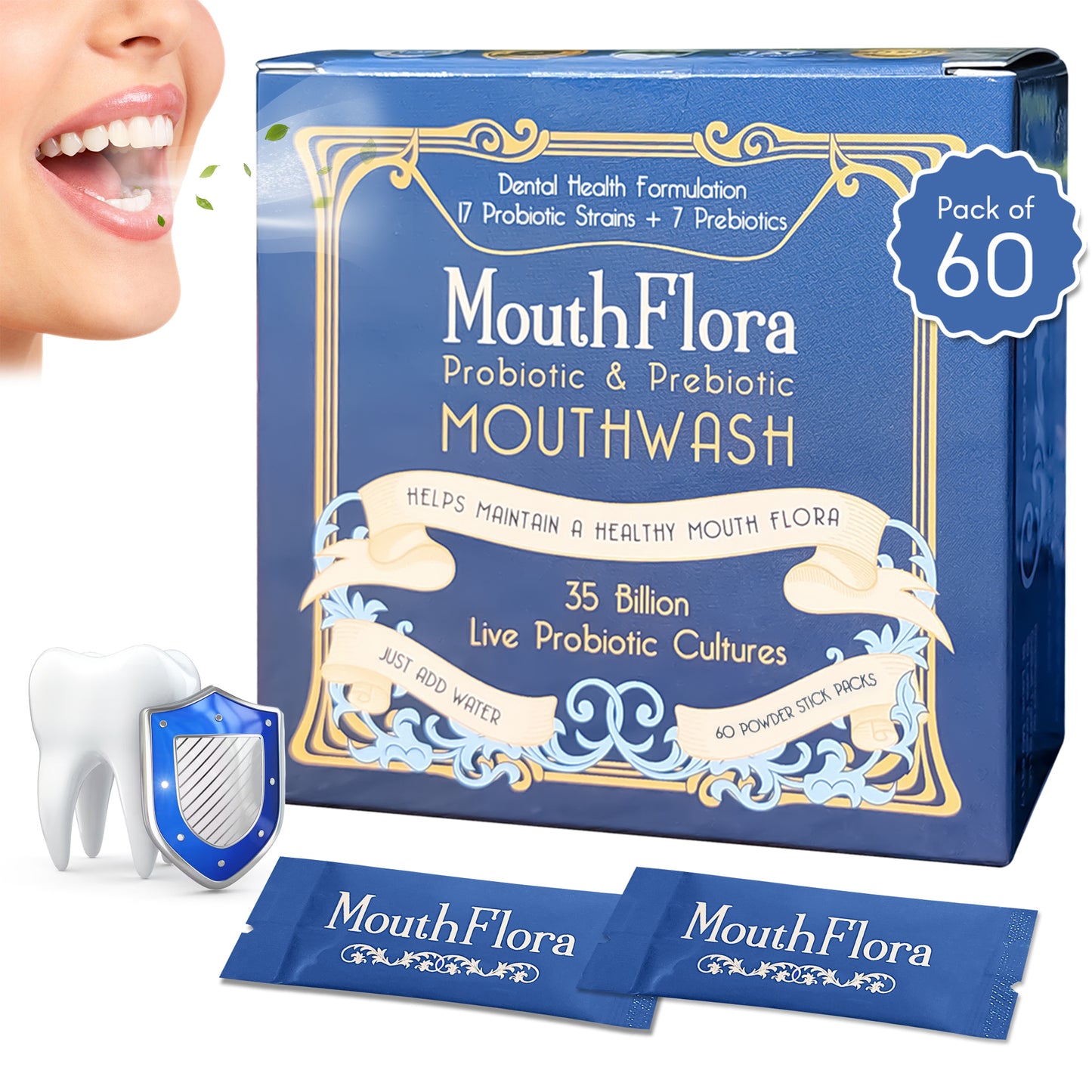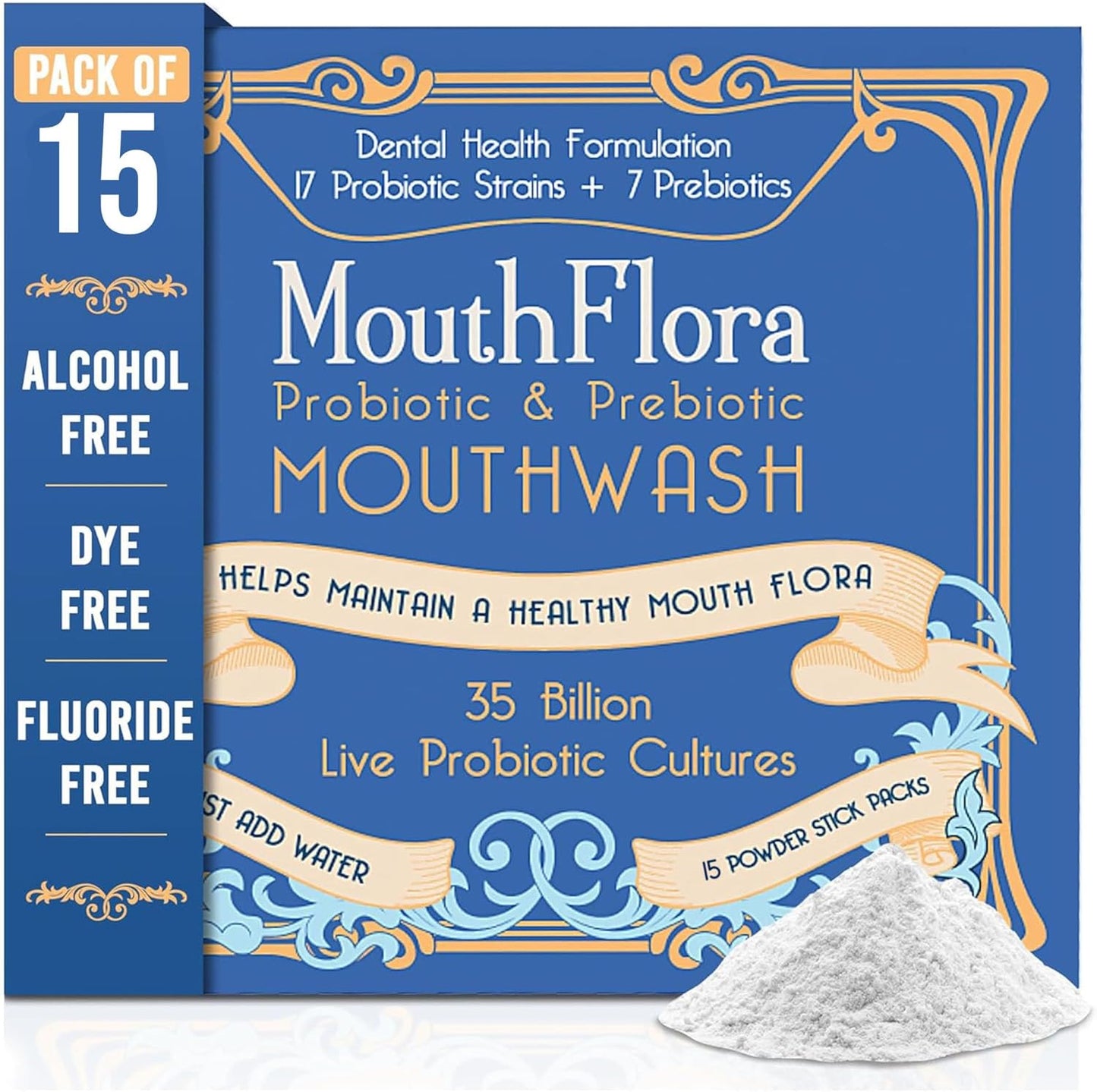Ligilactobacillus salivarius NK02: Reduces plaque formation and improves gum health by balancing the oral microbiome. (Di Pierro, F., et al., "Clinical application of Ligilactobacillus salivarius NK02 in oral health," Clinical and Experimental Dentistry, 2014).
Ligilactobacillus salivarius WB21: Improves overall gum health and reduces bad breath by inhibiting the growth of odor-causing bacteria. (Koll-Klais, P., et al., "Ligilactobacillus salivarius WB21 and its effects on breath malodor and oral health," Oral Microbiology and Immunology, 2005).
Limosilactobacillus reuteri: Improves gum health and reduces plaque by enhancing the production of antimicrobial compounds. (Vivekananda, M. R., et al., "Clinical effects of Limosilactobacillus reuteri on plaque reduction and gingival health," Journal of Clinical Periodontology, 2010).
Saccharomyces boulardii: A beneficial yeast that supports oral mucosa health and protects against harmful bacterial overgrowth. (Hatakka, K., et al., "The role of Saccharomyces boulardii in maintaining oral and gastrointestinal health," Clinical Oral Investigations, 2007).
Streptococcus A12: Known for its ability to inhibit the growth of Streptococcus mutans, the primary bacteria linked to tooth decay. (Huang, X., et al., "Streptococcus A12 and its role in oral health maintenance," Applied and Environmental Microbiology, 2016).
Streptococcus dentisani 7746: Neutralizes oral pH and combats caries-producing bacteria, reducing cavity formation risk. (García-Gutiérrez, E., et al., "Streptococcus dentisani and pH modulation in caries prevention," International Journal of Oral Science, 2014).
Streptococcus salivarius K12: Reduces bad breath and supports immune function by producing bacteriocins that inhibit harmful bacteria. (Burton, J. P., et al., "Clinical benefits of Streptococcus salivarius K12 in reducing halitosis," Applied and Environmental Microbiology, 2006).
Streptococcus salivarius M18: Produces antimicrobial peptides that reduce plaque and gum inflammation. (Wescombe, P. A., et al., "Streptococcus salivarius M18 and its effects on oral biofilm and gum health," International Journal of Oral Science, 2010).
Streptococcus thermophilus: Contributes to overall oral health by promoting the growth of beneficial bacteria and improving enamel protection. (Tanaka, Y., et al., "Streptococcus thermophilus in oral biofilm modulation and enamel protection," Journal of Oral Microbiology, 2018).
Arginine: Reduces oral acidity, helping to prevent cavities and promote remineralization of tooth enamel. (Acevedo, A. M., et al., "The role of arginine in oral health and enamel protection," Journal of Clinical Dentistry, 2017).
D-tagatose: Shown to reduce Streptococcus mutans levels and improve oral health by supporting beneficial bacterial growth. (Sasaki, Y., et al., "The impact of D-tagatose on oral bacterial biofilms and caries prevention," Journal of Oral Microbiology, 2016).
Glycine: Supports gum health and wound healing while reducing inflammation in oral tissues. (Shaw, J. H., et al., "Glycine’s role in promoting oral wound healing and reducing inflammation," Journal of Periodontal Research, 2005).
Inulin (Chicory Root Fiber): Supports the growth of beneficial oral bacteria and helps stabilize the oral microbiome. (Kapoor, M. P., et al., "The impact of inulin on the oral microbiome and caries prevention," Food and Function, 2016).
Nisin: A natural antimicrobial peptide that inhibits the growth of harmful bacteria without disrupting the beneficial oral flora. (Kumar, S., et al., "Clinical benefits of nisin in oral health maintenance," Journal of Applied Microbiology, 2018).
Proline: Plays a key role in maintaining healthy gum tissue and promoting oral healing. (Li, Y., et al., "Proline’s effect on gum tissue repair and oral health," Journal of Oral Science, 2015)
Xylitol: Reduces cavity-causing bacteria and enhances saliva flow, helping to repair enamel and prevent dry mouth. (Makinen, K. K., et al., "Xylitol and dental health: Mechanisms and clinical outcomes," Journal of Dental Research, 2001).



